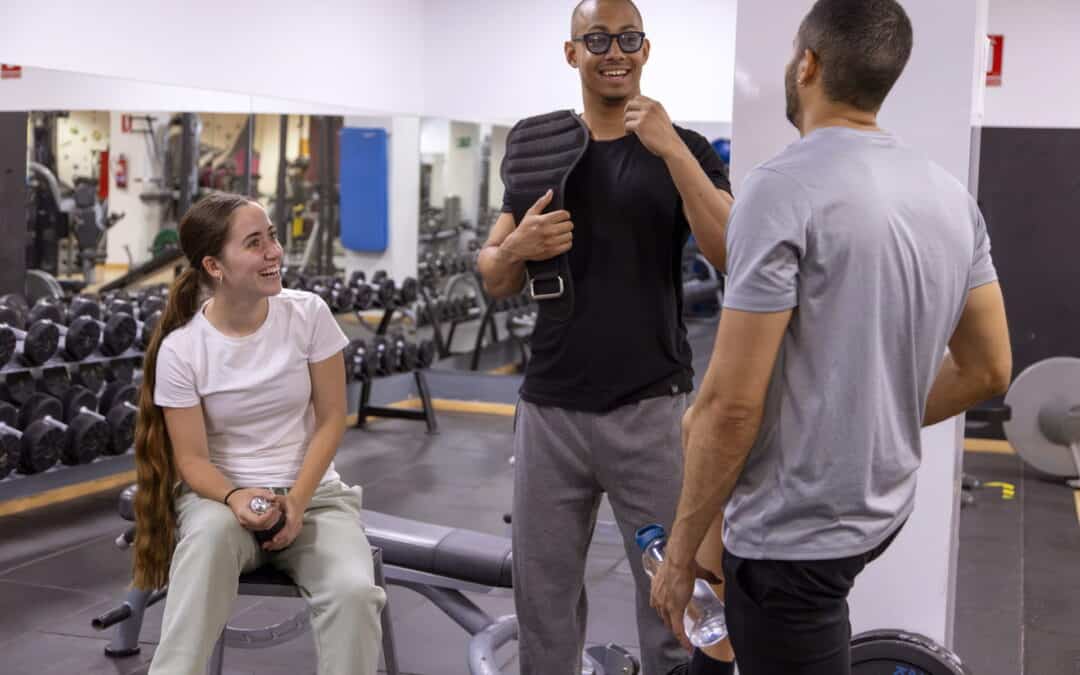Choosing the right personal trainer is a pivotal decision that can significantly impact your fitness journey. A well-matched personal trainer not only guides you through personalized workout plans but also motivates and supports you towards achieving your fitness goals. This guide will walk you through the essential do’s and don’ts of hiring a personal trainer, ensuring you make an informed choice that aligns with your fitness aspirations through personal training..
Understand Your Goals
Before embarking on the search for a personal trainer, clarity about your fitness goals is crucial. Whether you aim to lose weight, build muscle, or improve your overall health, understanding your objectives helps in finding a trainer who specializes in your area of interest. According to the American Council on Exercise, setting clear fitness goals significantly enhances the likelihood of success in your fitness journey.
Research Credentials
The credentials of a personal trainer are indicative of their expertise and commitment to their profession. Look for certifications from reputable organizations such as the National Academy of Sports Medicine (NASM) or the American College of Sports Medicine (ACSM). These certifications ensure that the trainer has undergone rigorous training and adheres to high standards of professionalism.
Check Experience
Experience in personal training matters, especially when it comes to dealing with specific health concerns or achieving particular fitness goals. An experienced trainer likely has a track record of success with clients who have similar objectives as yours. The National Strength and Conditioning Association highlights the importance of choosing a trainer with relevant experience to your fitness goals.
Personality Match
The relationship between a trainer and their client is deeply personal. Compatibility in terms of personality and communication style can greatly affect your motivation and commitment. A trial session can be a great way to assess whether the trainer’s coaching style matches your preferences.
Ask for References
Don’t hesitate to ask for references or testimonials from a trainer’s previous clients. This can provide insights into the trainer’s working style, reliability, and effectiveness. Hearing directly from others about their experiences can help set realistic expectations.
Consider the Cost
Investing in personal training is a commitment to your health. However, it’s important to consider the cost and ensure it fits within your budget. Many trainers offer package deals or discounted rates for longer commitments. The Bureau of Labor Statistics reports the average cost of personal training sessions and understanding these figures can help you navigate pricing discussions.
Evaluate Communication Skills
Effective communication is key to a successful trainer-client relationship. Your trainer should be able to clearly explain exercises, provide constructive feedback, and listen to your concerns. Open lines of communication will ensure that your training plan evolves with your progress.
Assess Compatibility
Your training preferences and the trainer’s expertise should align. Whether you prefer high-intensity workouts, strength training, or something else, make sure the trainer has a background in these areas. Compatibility in training philosophy can enhance your enjoyment and commitment to the program.
Location and Availability
The convenience of location and the trainer’s availability can significantly impact your consistency. Choosing a trainer who is available at times that fit your schedule and at a location that is convenient for you will help maintain regularity in your workouts.
Understand the Contract
Before signing any agreements, thoroughly review the contract details. Pay attention to cancellation policies, package expiration dates, and any other commitments. This ensures both parties have clear expectations from the outset.
Set Realistic Expectations
Setting realistic expectations with your personal trainer is essential for a fruitful relationship. Understand that progress takes time and consistency. A study by the Journal of Strength and Conditioning Research emphasizes the importance of patience and realistic goal setting in achieving long-term fitness success.
Safety First
Your safety should always be a priority. A good personal trainer will emphasize proper form and technique to prevent injuries. They should also be prepared to modify exercises to accommodate any existing health issues or injuries.
Choosing the right personal trainer is a decision that should be made with care and consideration. By understanding your goals, researching potential trainers, and ensuring a good match in terms of personality and training style, you can embark on a fitness journey that is both enjoyable and effective.
Key Takeaways for Hiring a Personal Trainer
- Clarity on your fitness goals is the first step in finding the right personal trainer.
- Verifying a trainer’s credentials and experience is crucial for ensuring they can meet your needs.
- Compatibility in personality and training philosophy greatly affects your motivation and success.
- Understanding the financial commitment and contract details can prevent future misunderstandings.
- Setting realistic expectations and prioritizing safety are essential for a positive training experience.
Frequently Asked Questions
Q: How often should I meet with my personal trainer?
A: The frequency of sessions depends on your fitness goals, schedule, and budget. Most experts recommend starting with two to three sessions per week to establish a routine.
Q: Can personal training help with weight loss?
A: Yes, personal training can be highly effective for weight loss, especially when combined with nutritional guidance and a personalized workout plan.
Q: What should I wear to a personal training session?
A: Wear comfortable, breathable clothing that allows for a full range of motion, and supportive athletic shoes.
Q: How long does it take to see results from personal training?
A: Results can vary based on your starting point, goals, and consistency. Generally, noticeable changes can be seen within eight to twelve weeks of regular training and proper nutrition.
Q: Is personal training worth the investment?
A: For many, the personalized attention, accountability, and tailored workout plans provided by personal training are worth the investment, leading to faster and more sustainable results.

